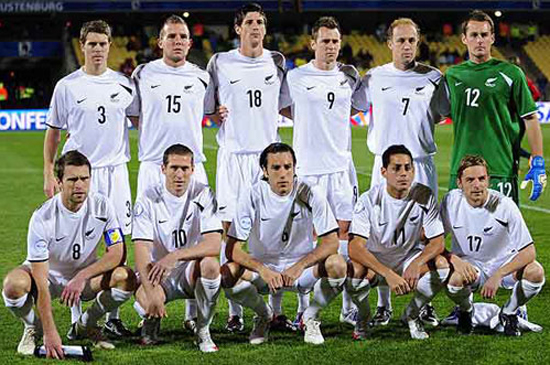As members of the Oceania Football Confederation (OFC) made their way last week to Pago Pago to vote for a new President, word reached me of an idea that could transform their futures and send a shockwave through the murky world of global football politics.
The idea of a breakaway Asian confederation, embracing Oceania and several easterly members of the current Asian Football Confederation (AFC) is being actively discussed.
At present it is hard to assess the timescale, or even the seriousness, of the notion.
What I can do now is attempt to put the idea in some sort of context.
The immediate trigger appears to be the result of the recent AFC vote to determine who would represent it on FIFA’s ruling 24-member Executive Committee.
Prior to this vote, the AFC’s four FIFA Executive Committee members came, respectively, from Qatar, South Korea, Japan and Thailand.
The result of the vote was that the South Korean and Japanese representatives have been replaced by men from Jordan and Sri Lanka.
In other words, there has been a significant westward shift in the balance of power within the sprawling and extraordinarily diverse AFC territory.
Add to this the fact that the unsuccessful candidates in this AFC election came from South Korea, Japan and China and you have a recipe for possible discontent among the AFC’s eastern membership.
Especially when you consider that three possible members of a new east Asian confederation – Japan, South Korea and Australia – are still smarting after the failure of their bids to stage the 2022 World Cup in a race won by the west Asian state of Qatar.
I can think of at least two further reasons why an eastern breakaway might make compelling sense for some in world football.
First, by embracing Oceania, the new confederation would solve the problem of the built-in imbalance of FIFA’s six current confederations.
 With just 11 mainly tiny members, the OFC, as currently structured, is always destined to be the runt in FIFA’s litter (for all that it produced the only unbeaten team at last summer’s World Cup – New Zealand, pictured).
With just 11 mainly tiny members, the OFC, as currently structured, is always destined to be the runt in FIFA’s litter (for all that it produced the only unbeaten team at last summer’s World Cup – New Zealand, pictured).
Its existence was always the flaw in the logic of the old policy of rotating the World Cup between confederations: once Australia had decamped to the AFC, it was clear that the OFC would not for the foreseeable future be able to offer a credible host for a tournament as massive as the FIFA World Cup.
A confederation including not just these Pacific nations, but the likes of Australia, Japan and China, most certainly would.
And this brings me to the second point: the creation of such a body would probably facilitate a successful bid from China for the 2026 World Cup.
Under normal circumstances, Qatar’s victory in the 2022 contest would make this very difficult, since it would not usually be acceptable for two countries from within the same confederation to host consecutive World Cups.
A breakaway that incorporated China would clearly remove this obstacle.
It all seems so convenient, doesn’t it?
There is, though, one nagging thought that leads me to counsel caution, at least for the time being, and makes me slightly sceptical that this east Asian confederation will ultimately see the light of day.
This is that the notion of such a breakaway is likely to prove a very considerable distraction to Mohamed Bin Hammam, the AFC’s Qatari President, at exactly the time when he may be planning a challenge for the FIFA Presidency held these past 12-and-a-half years by Switzerland’s Joseph Blatter.
At present, we seem to have entered a period of shadow boxing with Blatter and potential rivals – and there is more than one – manoeuvring continually for the upper hand.
Between now and April – when it should become clear if Blatter is facing a challenger or challengers – it will be advisable for football observers to weigh pretty much everything these heavy hitters say against the impact it might have on an eventual Presidential race.
The idea of this new Asian confederation may turn out, in part at least, to be more grist for this Presidential mill.
David Owen worked for 20 years for the Financial Times in the United States, Canada, France and the UK. He ended his FT career as sports editor after the 2006 World Cup and is now freelancing, including covering the 2008 Beijing Olympics and 2010 World Cup. Owen’s Twitter feed can be accessed at www.twitter.com/dodo938

.jpg)